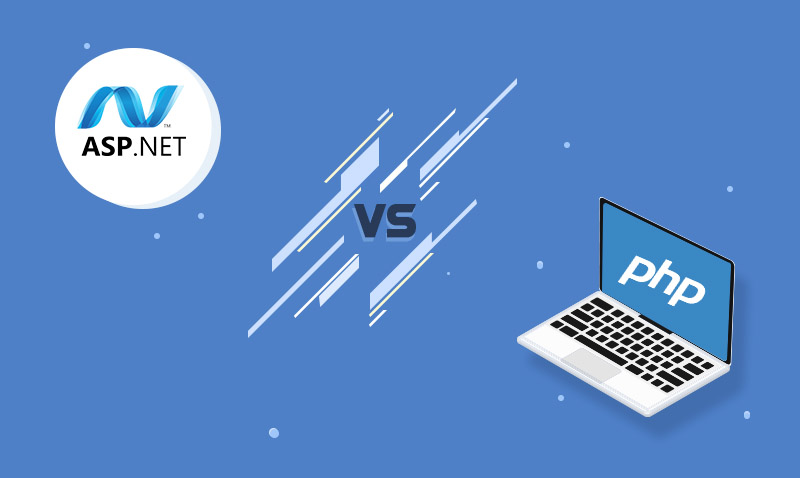Technology
PHP Vs .NET – Which One is the Best for Custom Software Development?


Introduction
Numerous articles and blogs are accessible on the Internet that includes a wealth of information on PHP Vs ASP.NET. Unfortunately, the majority of these blog postings are slanted and often favor one party over another. By staying true to the research, this article conducts an unbiased comparison of the two most prevalent technologies in today’s world, namely PHP and ASP.NET.
On the one hand, we have PHP, the world’s most widely used and popular web technology, with billions of committed PHP engineers worldwide. On the other hand, we have Microsoft’s ASP.NET platform. At times, it’s tough to decide which technology (PHP or Asp.net) to choose for our application or website development project. Since a lot of people keep cost-effectiveness as their first factor of priority, they tend to defocus on quality or performance. There are many factors that affect the cost of developing .Net Apps as well as PHP Apps. However, that also depends on what your hired .net development company or PHP development company offers to you. Prioritizing only cost-effectiveness doesn’t always lead to a successful future for your app.
Therefore, in this article, we’re gonna take a spin over the basic difference between them along with the pros and cons. This comprehensive comparison guide will assist you in determining the finest technology for your next web application development project.
What Is the Difference Between PHP and.Net?
PHP is an open-source web development programming language. It is compatible with Unix-like and Windows systems. PHP may also be integrated into HTML and utilized as a server-side scripting language. It enhances the dynamism and simplicity of apps. It may be run using command-line tools or graphical user interface apps. Net is a programming framework that is mostly used on Microsoft Platforms and Windows. The term “Net” does not refer to an operating system or programming language. The network is a layer that sits between the operating system and programming languages. It enables developers to write code in any language simply by changing the syntax.
PHP vs. ASP.NET: Performance & Scalability
To begin, a widespread myth concerning website performance and speed is that the language in which your code influences the overall performance of your website. In actuality, however, there is a minimum speed difference between PHP and ASP.NET websites. Consider one of the most basic jobs of every online application: querying a database and outputting the results to the web server and ultimately to the end user’s browser.
In the example outlined above, the coding language is only connecting with the database and web servers to get the intended result. Both PHP and ASP.NET web development are equally capable of accessing file systems, locating pictures, and displaying pages on a web server, and their performance is much more dependent on the database server, the end user’s machine, and bandwidth, among other factors.
Having said that, there are widespread misconceptions in the industry regarding ASP.NET web development being more beautiful than PHP. While ASP.NET does not allow for as many inconsistencies in its code while still running (which theoretically makes PHP web development services a more approachable language for novices), the real economic benefits of being able to create “prettier code” are insignificant.
While many professional PHP developers may scoff at the concept of developing a website in PHP, the fact that colossal websites such as MailChimp and Facebook are built in PHP should suffice to debunk any impression that PHP sites perform worse than ASP.NET sites.
Pros and Cons: PHP Vs. ASP.NET
The Advantages and Disadvantages of PHP Development
Pros:
- It is open-source, which means that it is available for free and is regularly updated by a wide community of individuals rather than a single firm.
- PHP has a sizable developer community.
- PHP is an excellent choice for large-scale projects like Facebook and the White House website.
- PHP is a powerful tool for accessing and dealing with a wide variety of database types. This makes it ideal for web-based scripts such as content management systems for websites.
- It is very expandable, and you can quickly tweak it to meet your specific requirements.
- The market is flooded with thousands of expert PHP developers.
- Low cost, simple to learn, code, and deploy.
- A variety of online support groups exist to assist in expediting the learning process.
Cons:
- One of PHP’s primary drawbacks is that it is typically unsuitable for developing desktop apps.
- In comparison to other programming languages, PHP applications often execute slower.
- It allows for more flexibility than ASP.NET, which results in errors and bad code.
PHP’s error handling has a reputation for being subpar in comparison to other programming languages, which means it might take longer to debug why a particular piece of code is failing to execute as planned.
The Advantages and Disadvantages of ASP.NET
Pros:
- ASP.NET is extremely scalable; its scalability index even puts PHP to shame.
- It is Microsoft’s property.
- Compatibility with all programming languages and excellent performance with either app or C#
- It notifies developers if they committed any code errors prior to compiling.
- It has a plethora of tools and features designed to assist programmers.
- Excellent compatibility with Windows
- A superior platform for enterprise-level applications.
- Rapid development thanks to a large number of pre-coded choices
- A superb graphical user interface for developers
Cons:
- Difficult to learn and much more difficult to comprehend
- A more intimate support network
- It is limited to Microsoft servers.
- It is significantly more costly than average due to the Microsoft license.
- Not as capable of website creation as PHP
- Based on proprietary technologies.
Final Words
As this argument between ASP.NET and PHP draws to a close, it’s time to decide which is superior. Both development frameworks are amazing at what they do, and developers may freely pick between them depending on the development process’s requirements. I hope the discussed characteristics for comparing the two languages assist you in determining which one is the greatest fit for your needs and requirements. If you’re still unsure, you may contact a reputable and well-known IT consulting business for assistance in deciding between the two options based on your web application development requirements.





 Technology2 months ago
Technology2 months agoWhy Adding Videos to WooCommerce Product Galleries is Essential in 2025



 General2 months ago
General2 months agoWhat Is Smart Construction? A Beginner’s Guide



 Technology1 month ago
Technology1 month ago7 Essential TikTok Metrics to Track for Higher TikTok Views in 2025



 Technology1 month ago
Technology1 month agoHow to Send WooCommerce SMS Notifications for Orders

 Model3 weeks ago
Model3 weeks agoTiffany Stratton: Biography, Wiki, Age, WWE Career, Net Worth, Before Fame, Boyfriend





 Technology4 weeks ago
Technology4 weeks agoTop 5 Tips for Using File Uploads in Your WooCommerce Store Efficiently

 Technology3 weeks ago
Technology3 weeks agoWhy Airlines Are Using Virtual Reality Services for Pilot Training



 General4 weeks ago
General4 weeks agoThe Hidden Costs of a DUI & How a Lawyer Can Help You Avoid Them




You must be logged in to post a comment Login